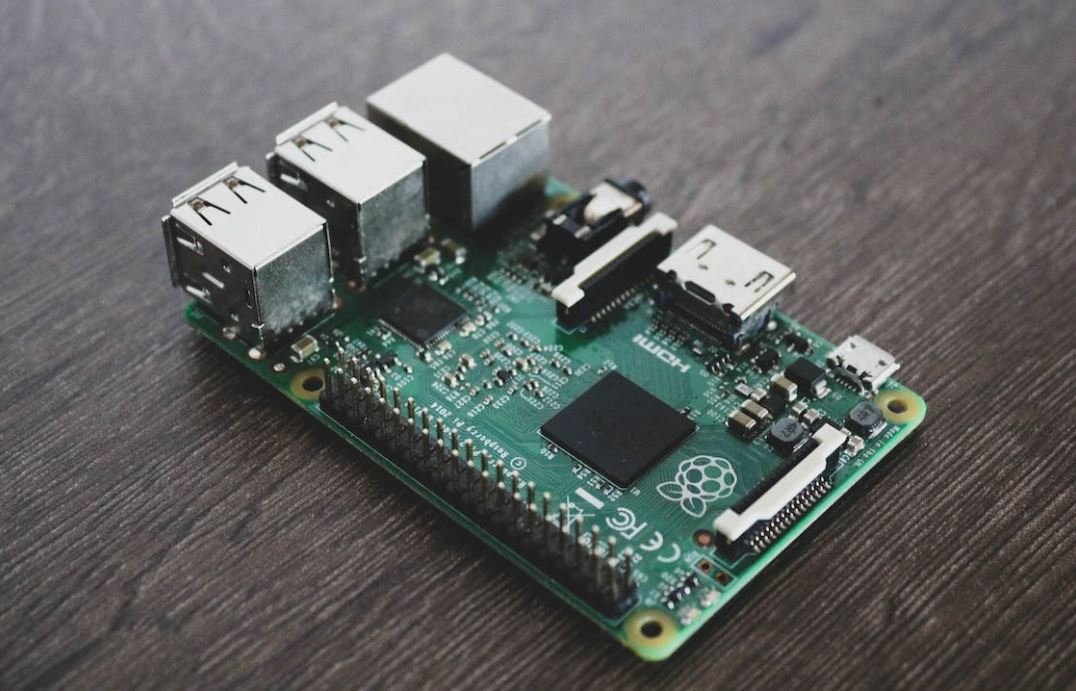Will Data Entry Jobs Be Automated?
Data entry jobs have long been a popular choice for individuals seeking flexible working arrangements, and companies looking for efficient data management. However, with the advancement of technology and the rise of automation, there is a growing concern that these jobs may soon be at risk. In this article, we will explore whether data entry jobs will become automated and the implications it may have on the workforce.
Key Takeaways:
- Data entry jobs are at risk of being automated due to advancements in technology.
- Automation may lead to job displacement, but it can also create new opportunities.
- Upskilling and focusing on tasks that cannot be automated can help secure future employment.
Data entry tasks typically involve repetitive and time-consuming activities, such as inputting data into databases or spreadsheets. These tasks are prime candidates for automation as they can be easily programmed and performed by machines. *However, it is important to note that not all data entry jobs will be fully automated.* While automation may significantly reduce the number of manual data entry tasks, there will still be a need for human oversight and validation.
Despite the potential threat of automation, there are several reasons why data entry jobs may still be in demand in the future. Firstly, data entry tasks require a certain level of accuracy and precision that may not be easily replicated by machines. Secondly, complex data entry tasks often involve making judgment calls or interpreting information, which requires human judgment and expertise. Additionally, data entry jobs may involve sensitive or confidential information that requires a high level of human trust and accountability. *These factors make it unlikely for data entry jobs to be fully automated in the near future.*
The Role of Automation in Data Entry
Automation has already started to play a significant role in data entry tasks. Companies are increasingly implementing software and tools that can extract data from various sources and automatically populate databases or spreadsheets. This reduces the need for manual data entry, saving time and resources. *However, automation is not limited to replacing human workers; it can also augment their capabilities.* Tools that can validate and correct data entries, identify patterns, and assist with data analysis can enhance the efficiency and accuracy of data entry professionals.
The Benefits and Drawbacks of Automating Data Entry
Automating data entry tasks offers several benefits for businesses. These include increased productivity, reduced errors, and cost savings. With automation, data can be processed and analyzed at a much faster rate, allowing companies to make informed decisions in a timely manner. Additionally, automated data entry reduces the risk of human error, which can be costly for businesses. *However, there are also drawbacks to consider.* Automated systems require initial investment and ongoing maintenance. Furthermore, they may not be suitable for all types of data entry tasks, especially those that involve complex data or require domain-specific knowledge.
| Data Entry Tasks | Potential for Automation |
|---|---|
| Simple data entry into forms or templates | High |
| Validating and correcting data entries | Moderate |
| Complex data analysis | Low |
It is crucial for individuals in data entry roles to adapt to the changing landscape of automation. Rather than being fearful of job displacement, it is essential to focus on upskilling and acquiring new knowledge and skills that can complement automated systems. By specializing in tasks that require critical thinking, decision-making, and human judgment, data entry professionals can ensure their continued relevance and employability. *Automation should be seen as a tool to enhance productivity and efficiency, rather than as a threat.*
The Future of Data Entry Jobs
While it is possible that certain aspects of data entry jobs will be automated, experts agree that there will always be a need for human involvement in data management tasks. As technology continues to evolve, data entry jobs may undergo transformations, requiring workers to adapt to new tools and technologies. *By embracing automation and continuously upgrading their skills, data entry professionals can future-proof their careers.* The key lies in skill diversification and finding ways to add unique value that cannot be easily replicated by machines.
| Data Entry Jobs | Potential for Automation |
|---|---|
| Simple data entry tasks | High |
| Data validation and correction | Moderate |
| Complex data analysis and interpretation | Low |
Overall, while automation may impact certain aspects of data entry jobs, it is unlikely to completely replace the need for human involvement. The key to staying relevant in the changing landscape is to adapt, upskill, and focus on tasks that require human expertise and judgment. Embracing automation as a tool rather than a threat, data entry professionals can secure their future in this evolving field.

Common Misconceptions
Misconception: Data Entry Jobs Will Completely Disappear
One common misconception is that data entry jobs will completely disappear as automation advances. However, this is not entirely true.
- Data entry jobs may evolve and require different skills as automation technologies improve.
- While some aspects of data entry may be automated, human intervention and judgment will still be necessary for complex tasks.
- Data entry jobs may shift towards more focused analysis and interpretation of data rather than tedious data input tasks.
Misconception: All Data Entry Jobs are Low-Skilled
Another misconception is that all data entry jobs are low-skilled and easily replaceable by automation. However, this oversimplifies the nature of data entry work.
- Data entry jobs often require a deep understanding of specific industries and technical knowledge.
- Accuracy and attention to detail are crucial in data entry, which makes it a skill that cannot be entirely automated.
- Data entry jobs that involve complex data cleansing, verification, and manipulation require specialized expertise and critical thinking.
Misconception: Data Entry Automation Will Result in Unemployment
Many people believe that data entry automation will lead to mass unemployment in the industry. However, this belief ignores the potential for shifts and adaptations in the job market.
- Data entry professionals can upskill and transition to higher-value data-related roles that emerge with automation.
- Automation can free up time for data entry professionals to engage in more innovative or analytical tasks within organizations.
- As automation reduces costs, businesses may be able to allocate resources to new areas that require human expertise.
Misconception: Data Entry Automation is Already Perfect and Accurate
Another misconception is that data entry automation technologies are already perfect and completely accurate in their processing. However, this is not the case.
- Data entry automation technologies can still make errors and require human intervention for quality control.
- Complex data formats or poorly structured data can pose challenges for automation, leading to inaccuracies.
- Human verification and validation remain critical to ensuring data accuracy, especially in data entry jobs that involve sensitive information.
Misconception: Only Data Entry Jobs Will be Automated
There is a misconception that only data entry jobs will be automated, leaving other job roles unaffected. However, automation has the potential to impact various aspects of the workforce.
- Automation can change the nature of other job roles that rely on data entry as a part of their responsibilities.
- Data entry automation can lead to increased productivity in other areas, allowing employees to focus on more strategic and value-added tasks.
- Although data entry jobs may be more susceptible to automation, other areas of work can also benefit from automation technologies.

Advantages of Data Entry Jobs
Data entry jobs have long been a popular choice for individuals seeking flexible work options or supplemental income. These jobs typically involve the inputting and organizing of various data sets, making them easily adaptable to automation. However, despite the potential for automation, data entry jobs continue to thrive due to several advantages they offer. The following table displays some of these advantages:
| Advantages of Data Entry Jobs |
|---|
| 1. Frequent availability of remote work options |
| 2. No specific educational requirements |
| 3. Flexibility in scheduling |
| 4. Opportunities for skill development |
| 5. Relatively low entry barriers |
| 6. Ability to work independently |
| 7. Suitable for various experience levels |
| 8. Can be done from anywhere with an internet connection |
| 9. Increased demand from digitization efforts |
| 10. Offers opportunities for flexible income |
The Impact of Technological Advances
Technological advancements, particularly in artificial intelligence and machine learning, have raised concerns about the sustainability of data entry jobs. While the automation of certain tasks is inevitable, it is essential to consider the aspects that might continue to require human involvement. The table below highlights some elements of data entry that are unlikely to be fully automated:
| Elements of Data Entry Jobs |
|---|
| 1. Data validation and integrity checks |
| 2. Handling of complex or unstructured data |
| 3. Dealing with exceptions and errors |
| 4. Context-based interpretation |
| 5. Data verification and review |
The Future of Data Entry Jobs
Considering the ongoing progress in automation technologies, it is imperative to analyze the potential impact on data entry jobs. Contrary to widespread concerns, the steady growth and relevance of data entry jobs are likely to persist for various reasons. The table below provides insights into factors favoring the continued existence of data entry jobs:
| Factors Favoring Data Entry Jobs |
|---|
| 1. Varied data formats requiring human interpretation |
| 2. Incorporation of handwritten or scanned documents |
| 3. Data entry as an initial step for further analysis |
| 4. Confidentiality concerns involving sensitive data |
| 5. Continuous need for accurate data input in numerous industries |
Automation of Repetitive Data Entry Tasks
While certain routine data entry tasks can be automated, it is crucial to identify the level of automation possible. The table below demonstrates different data entry tasks and their potential for automation:
| Data Entry Tasks | Potential for Automation |
|---|---|
| 1. Copy-pasting data from standardized forms | High |
| 2. Transferring information from one electronic format to another | Medium |
| 3. Structured data entry from digital sources | Medium |
| 4. Extracting specific data points from large datasets | Low |
| 5. Contextual understanding and data classification | Low |
The Human Advantage in Data Entry
Despite advances in automation, human input remains essential in various aspects of data entry jobs. To fully comprehend the value humans bring, the following table highlights key areas where humans outperform automation:
| Areas Where Humans Excel |
|---|
| 1. Handling ambiguous or incomplete datasets |
| 2. Creative problem-solving related to data entry challenges |
| 3. Adaptability to diverse data sources and formats |
| 4. Quality control and error identification |
| 5. Effective communication with clients or data providers |
Data Entry Automation and Job Security
Concerns about job security often arise with increasing automation. However, data entry jobs still offer favorable prospects due to the following reasons:
| Reasons for Favorable Job Prospects |
|---|
| 1. Focused expertise in niche industries |
| 2. Data privacy and security regulations driving demand |
| 3. Adaptation of roles with blended job profiles |
| 4. Integration of automation as a complement to human efforts |
| 5. Growing emphasis on data accuracy and integrity |
The Role of Upskilling in Data Entry
In an era of evolving technologies, upskilling plays a significant role in ensuring continued relevance and job security. The table below outlines areas where data entry professionals can focus their efforts to enhance their skill sets:
| Areas for Upskilling |
|---|
| 1. Advanced data analytics and visualization techniques |
| 2. Proficiency in specialized data entry software |
| 3. Familiarity with data extraction and manipulation tools |
| 4. Knowledge of industry-specific regulations and compliance |
| 5. Effective data communication and reporting |
Current Trends in Data Entry Jobs
To gain a better understanding of the prevailing trends in data entry jobs, the table below provides insights into the changing dynamics:
| Current Trends in Data Entry |
|---|
| 1. Focus on real-time data entry and analysis |
| 2. Introduction of AI-powered data entry platforms |
| 3. Integration of robotic process automation (RPA) |
| 4. Remote data entry opportunities on the rise |
| 5. Increased emphasis on data quality and cleansing |
Predictions: The Future of Data Entry Jobs
While fully automating data entry jobs might seem like an imminent reality, the convergence of human and machine efforts appears more likely. The following table highlights potential scenarios for the future of data entry jobs:
| Potential Future Scenarios |
|---|
| 1. Human-assisted intelligent data entry systems |
| 2. Transition towards higher-level data consultancy roles |
| 3. Narrowed focus on specialized niche fields |
| 4. Increased reliance on blended teams of humans and machines |
| 5. Greater importance placed on quality control and analysis |
Ultimately, the future of data entry jobs lies in the collaborative efforts of humans and automation. While certain tasks are susceptible to automation, human intelligence and adaptability will continue to be vital in handling complex data sets, ensuring accuracy, and providing valuable insights.
Frequently Asked Questions
Will data entry jobs be automated?
Yes, data entry jobs are increasingly being automated with advancements in technology.
What is data entry?
Data entry involves inputting and processing data into digital systems or databases.
What tasks are typically part of data entry jobs?
Data entry jobs can include tasks such as transcribing data from physical documents, updating and maintaining databases, and validating information.
How are data entry jobs currently performed?
Currently, data entry jobs often require manual labor where individuals enter data into software applications or systems.
Why are data entry jobs being automated?
Data entry jobs are being automated to improve efficiency, reduce errors, and save time and costs for organizations.
What technologies are driving the automation of data entry jobs?
Technologies such as optical character recognition (OCR), machine learning, and artificial intelligence (AI) are being used to automate data entry tasks.
Will all data entry jobs be automated?
Not all data entry jobs will be fully automated, as some tasks may still require human intervention or decision-making.
What are the benefits of automating data entry jobs?
Automating data entry jobs can lead to increased accuracy, faster processing times, reduced costs, and improved productivity.
Will automation eliminate the need for human data entry professionals?
No, automation will not eliminate the need for human data entry professionals entirely. However, the nature of their roles may change, requiring more advanced skills in managing automated systems.
What skills will be valuable for data entry professionals in the age of automation?
Data entry professionals will benefit from developing skills in data analysis, data validation, problem-solving, and knowledge of automation tools and technologies.




